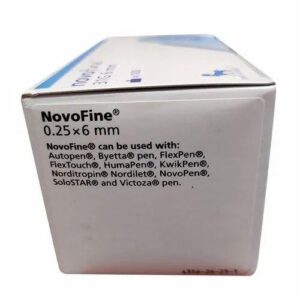INSULIN NEEDLE
INSULIN NEEDLE: Insulin Needle is not a drug; it is a medical device used for injecting insulin.
Insulin is a hormone produced by the pancreas that helps regulate blood sugar levels. Individuals with diabetes either do not produce enough insulin (Type 1 diabetes) or are unable to use it effectively (Type 2 diabetes). Insulin therapy is essential for these individuals to control their blood sugar levels.
Insulin Needle is used specifically for injecting insulin into the subcutaneous tissue under the skin. It is a thin, hollow needle attached to a syringe or pen device. The needle comes in various lengths and gauges to accommodate different patient needs.
The mechanism of action of insulin involves facilitating the absorption of glucose from the bloodstream into cells, thereby regulating blood sugar levels. Insulin promotes the storage of glucose in the liver and muscle cells as glycogen, and it also inhibits the production of glucose by the liver. By enhancing glucose uptake and metabolism, insulin helps to lower blood sugar levels.
The dose of insulin administered varies depending on factors such as individual patient needs, insulin type (rapid-acting, short-acting, intermediate-acting, or long-acting), and the healthcare provider’s instructions. The specific dosage will be determined by the healthcare professional who prescribes the insulin therapy.
Side effects of insulin therapy may include hypoglycemia (low blood sugar), allergic reactions, injection site reactions (redness, swelling, or irritation), weight gain, and changes in the fatty tissue at the injection site (lipodystrophy). It is important to monitor blood sugar levels closely while taking insulin and report any unusual symptoms or side effects to a healthcare provider.

